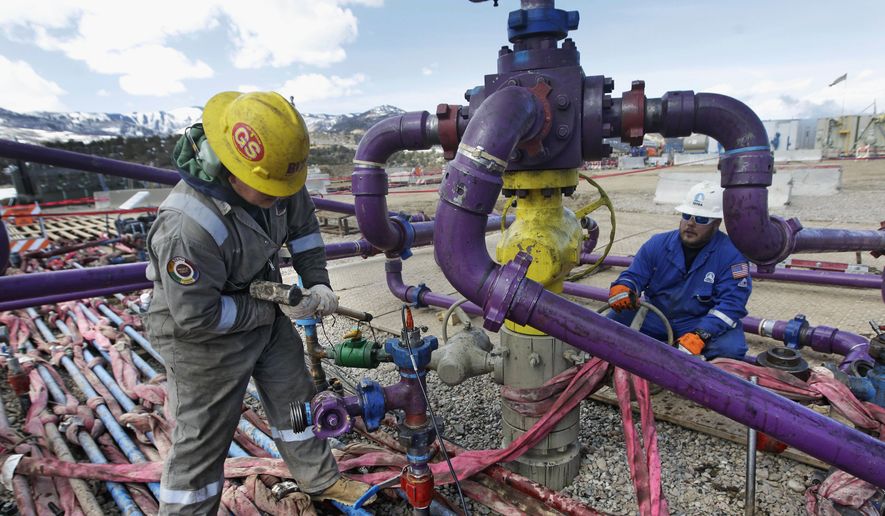DENVER — The anti-fracking movement suffered a setback Monday in Colorado, as two closely watched initiatives aimed at restricting fossil fuel development failed to qualify for the November ballot and prompted an investigation over suspected forgery of petition signatures.
Environmentalists backed by Food & Water Watch fell short of the signature requirement on two measures designed to limit oil and gas activity statewide after thousands of petition signatures were rejected as invalid.
“Citizens who are trying to get an issue on the ballot must submit 98,492 voter signatures,” Secretary of State Wayne Williams’ office said Monday in a statement. “Supporters of the two measures collected more than that for each proposal, but not enough to compensate for the number of signatures that were rejected during the random sample.”
Mr. Williams also turned over a signature petition to Attorney General Cynthia Coffman after flagging a section that “contains several potentially forged signature lines,” said the statement.
His office also reported that the anti-fracking proposals were the only two of nine citizen-initiated ballot measures that failed to meet the signature threshold.
Proponents have 30 days to appeal the decision, but Denver’s business community cheered the announcement Monday as a win for the state’s economy.
“Colorado voters recognized that these extreme measure would destroy the state’s economy and take away private property rights,” said Karen Crummy, a spokeswoman for the industry-backed group Protecting Colorado’s Economy, Environment, and Energy Independence.
“The voters read the petitions and declined to sign them because they understood the devastating consequences these initiatives would have on all Coloradans,” said Ms. Crummy.
She cited a study by the University of Colorado Leeds School of Business that said the measures would have eliminated 90 percent of oil and natural gas development in Colorado at a cost of 140,000 jobs and $217 billion in economic activity over the next 15 years.
Initiative 75 would have given local governments authority to regulate and ban oil and gas development, while Initiative 78 would have required a 2,500-foot setback from such operations.
Initiative 75 gathered 80.8 percent of the 98,942 signatures needed to qualify for the November ballot, and Initiative 78 took in 78.3 percent, according to the secretary of state.
If the count stands, it would mean the environmental movement is 0-for-2 in its efforts to place anti-fracking measures on the Colorado ballot.
Two years ago, environmentalists failed to qualify an anti-fracking initiative for the ballot after Rep. Jared Polis, the campaign’s primary financial backer, pulled the measure as part of a deal with a fellow Democrat, Gov. John Hickenlooper.
“Out-of-state special interests trying to hijack Colorado’s energy policy lost big time today,” said Jonathan Lockwood, executive director of Advancing Colorado.
• Valerie Richardson can be reached at vrichardson@washingtontimes.com.




Please read our comment policy before commenting.